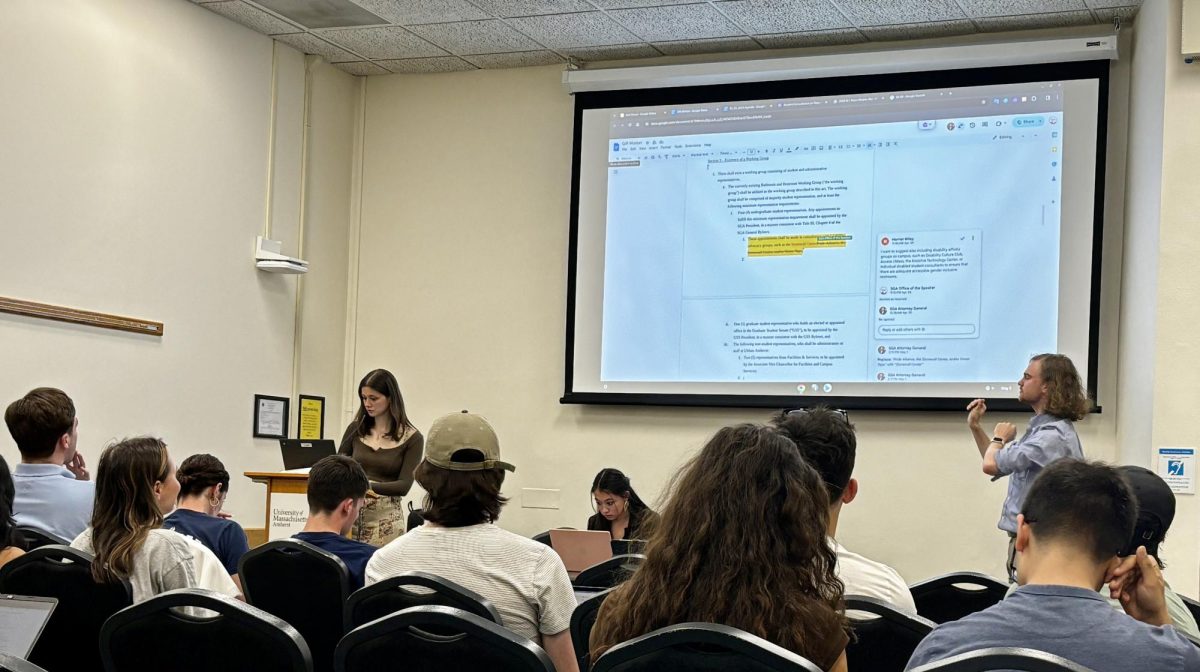My friend Sami has a tendency to refer to cute and adorable people or things as “muffins,” I think. The truth is, I really don’t know what she means – perhaps it’s some obscure inside joke or reference. Rather than stressing the exact definition of what she is trying to say, I just play along. In reality, it could mean anything from bakery goods to a chair. If “muffin” were some sort of derogatory term, what she says could even be deemed offensive, which is why it is so important to understand that anything you say can be wrongly interpreted.
You could say that I’m just ignoring what she could really be saying; but in all honesty, there’s no way I could understand exactly what she is thinking. The only way she, or anyone, can communicate her thoughts is through words. The only reason this is relevant is that, although she may say “muffin,” I have to realize it’s being used in an abstract way and not necessarily the way I might use it.
Now, talking about muffins and adorable kids on TV may not make you want to break out your pitchforks and torches, but there are plenty of ways to rub people the wrong way. This is especially common when the context of speaking comes to TV and other mass media. Saying just the wrong thing in an interview or press conference could land a celebrity on the front page of a tabloid in the blink of an eye.
Pitchforks and torches were images brought forth when Kelly Tilghman, an anchor on the Golf Channel, made an inappropriate comment concerning Tiger Woods, the highest ranked golfer in the world. In response to a co-anchor’s inquiry on how younger players should challenge Woods’ successes, Tilghman replied, “Lynch him in a back alley.”
Although the comment would be deemed inappropriate under normal circumstances, Tilghman’s statement was downright offensive since Woods is multiracial, but is primarily considered to be black. While the anchor was merely attempting to entertain her audience through a joke, the message was not received in the lighthearted manner she had expected. When Michael Richards, better known as Cosmo Kramer, went on a tirade over an African-American heckler, he was attempting to get shock laughs from his audience. His comments, however, contained many racist terms and caused his audience to walk out and his fame to dissolve when recordings became public. The process of communication through language consists of the speaker encoding thoughts into words that are sent to the listener who in turn interprets what is said in his or her own way. Herein lies the chance for misinterpretation and an inability to say what you really want. In cases where what you say can be determined to be racially insensitive, like Tilghman’s, it usually is. Since we live in a society where discrimination and simply offensive comments are not out of the question, it’s no fault of someone else’s if he or she takes what you said the wrong way. Even if you have the best of intentions, you are responsible for what you say. You can control whatever happens to come out of your mouth; however, no one can control how they receive and react to it. Free speech is a right – a well-deserved one at that – but the Bill of Rights does not justify everything you say. Racial insensitivity and outcry is only touched upon when people react, not when it is spoken. Among friends, you can drop f-bombs and make jokes about mothers, as long as it’s accepted. People have the right to say what they believe. No one’s going to stop that. It’s when what they say conflicts with the rights and well-being of others that the speaker must be held accountable. If you’re clad in a gaudy Eli Manning jersey and find it necessary to remind everyone you see in the hall that their preferred football team lost an important game, you’re not going to be a very popular person in that hall. Meanwhile, shouting derogatory terms about New York sports franchises in response is unlikely to resolve the issue. Unfortunately, when two parties such as these interact, there is very little chance that everyone’s going to be happy. Whether you’re calling someone a “muffin” or going on a tirade, keep in mind that you’re responsible for any reaction you may receive. So instead of reminding those that root for Foxboro-based football teams of the outcome of a game, it might be easier to just let it go. Don’t worry, we didn’t forget. Nicholas O’Malley is a Collegian columnist. He can be reached at [email protected].






